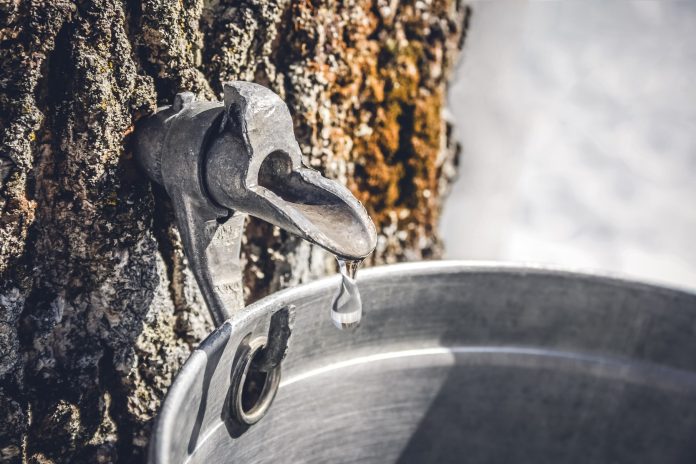This article originally appeared in Townhall
February is the peak of maple syrup production season, which means climate activists and their media allies are once again claiming climate change is ravaging maple syrup production. The media peddle this story every year, and every year maple syrup production thoroughly debunks the claim. The objective fact – backed by undisputed scientific data – is maple syrup production sets new records on a frequent basis.
At the top of its search results this week for climate change, Google News links to a Feb. 16 Boston Globe article claiming, “Welcome to the new normal for New England winters, where increasingly, maple syrup producers are tapping trees over a month early” to try to salvage production in the climate crisis. The headline of a Feb. 11 Bloomberg article, also promoted by Google News, claims, “Maple Syrup’s $1.5 Billion Industry Splinters as Winters Get Warmer.”
Dozens of media outlets promote the maple syrup climate scare each winter and spring. Here are just a few examples from last year: On May 30, 2022, Global News Canada published an article titled, “Climate Change Threatening Maple Syrup Industry, Producers Say.” USA Today published a May 16, 2022 article titled, “Climate Change Means Uncertain Future for Northeast Maple Trees, Syrup Season.” Gothamist published an April 6, 2022 article titled, “How Climate Change Is Making Maple Syrup Less Sweet – and Sapping Production in NY, NJ.”
There are two points of misinformation peddled in the maple syrup scare stories. First is that warming winters are altering and shortening the late winter maple syrup production season, which is ravaging maple syrup production. Second is that hotter, dryer summers reduce the amount of photosynthesis in sugar maples. Less photosynthesis results in less sugar production, causing sugar maple sap to be less sweet.
Regarding the first point, scientists have found that maple sap production season advances merely four days for every 1 degree Celsius in temperature. That means over the past century or so, sap production season has advanced by just four days. That is not very much of a change.
Also regarding the first point, the miniscule change in the maple sap production season has not caused any decline in sap production. To the contrary, maple syrup production sets new records on a regular basis. The website Statista documents that 2022 was the best season ever for U.S. maple syrup production, smashing the previous record by nearly 20 percent.
Every one of the top seven all-time sap production years has occurred during the past seven years. Maple syrup production in Canada shows a similar dramatic upward trend.
Regarding the second point, the claim that climate change is making maple syrup less sweet, relies on conjecture that global warming is stunting photosynthesis by maple trees. Maple trees produce sugar when their leaves collect sunlight and turn it into sugar. Climate activists argue that a summer with more environmental stress – such as a climate with drier summers and more drought – will inhibit leaf growth, inhibit the efficiency of photosynthesis, and inhibit the tree’s ability to turn sunlight into sugar.
In reality, climate change is not inhibiting photosynthesis and tree health. NASA satellite measurements show that global leaf intensity has increased dramatically during the past 40 years, due mostly to more atmospheric carbon dioxide. This is particularly the case in New England and southern Canada, where a majority of the world’s sugar maples are.
Moreover, the asserted increase in hot, dry summers is not occurring. Vermont is by far the state with the most maple syrup production. The National Oceanic and Atmospheric Administration’s (NOAA’s) “State Climate Summaries 2022: Vermont” documents there is no trend in Vermont in the number of hot summer days. 1954 was the year with the most hot summer days and 1975-1979 was the five-year period with the most hot summer days. Also, the NOAA summary reports, “Average annual precipitation has generally been above the long-term average since 1970.” So much for the conjecture that climate change is putting harmful summer stress on maple trees via more heat and drought. Of course, we already know there is less stress and more photosynthesis in Vermont maple trees from the NASA satellite images showing stunning growth in Vermont’s leaf intensity.
As is the case with so many fictitious climate scares, ignore the media alarmism and treat yourself to a second helping of delicious maple syrup!



















Great to see some responsible, fact and science-based reporting overturning the tendency toward sensationalism and catastrophization. It is really important to shift the climate narrative in the direction of science, facts, and good old-fashioned common sense.